Billy Coffey's Blog, page 38
August 20, 2012
Your six word memoir
 Summer’s over. One look around our home will tell you this. There are school supplies stacked in each of my children’s rooms, and my teacher wife has been regaling me of the myriad educational ideas she’s found on Pinterest. As per usual, I’ve taken in all of this information with the appropriate amounts of nods and wows. It’s tough being a teacher. Tough being a teacher’s husband, too.
Summer’s over. One look around our home will tell you this. There are school supplies stacked in each of my children’s rooms, and my teacher wife has been regaling me of the myriad educational ideas she’s found on Pinterest. As per usual, I’ve taken in all of this information with the appropriate amounts of nods and wows. It’s tough being a teacher. Tough being a teacher’s husband, too.
One of these ideas, however, has struck me. So much so that it slowly became one of those things that simply refused to go away until I exorcised it through writing. Which is what I’m doing now.
It’s ironic, really, because this thing that’s gotten my wife fired up (as well as my brain moving) is a writing exercise—one that’s simple on top but difficult on the bottom. It’s a child’s game called The Six Word Memoir.
I’ve heard of such things before. Through the years there have been more than one writer who’s taken up the task to tell a complete story in the shortest amount of words. Six seems to be the magic number, and to me no one did it better than Hemmingway (his six word story—“For sale: baby’s shoes, never worn.”). It’s a tough thing, trying to whittle down a hundred thousand words or so into six and still call it a story.
But as I sat down the other night and reached for my notebook and pen, I discovered shrinking down forty years of life into six words was even tougher. After twenty minutes or so of desperately trying and utterly failing, I began to think that such an exercise was not only impossible, it was pointless, too. It seemed cheap in a way, taking all of my memories and hopes and balling them up into a few simple syllables. I’ve never held a very high opinion of myself, but that opinion had never been so low as to hold that six words were sufficient to define me.
Now that I’ve had some time to ponder, though, I’ve come to believe different. I sat on my porch for a full hour and went though three pages of paper (front and back, mind you) trying to get this right. Far from making me feel cheap, this whole experience has taught me much. There’s value in whittling down your life into six words. A lot.
It forces you to realize that all those things you think are necessary really aren’t at all. And also that the things you do that seem small are actually sort of big. You only have time for important things. There isn’t space enough for anything else. And really, how often in our comings and goings do we actually stop and ask ourselves what we’re coming and going for, or whether we’re chasing after the right things, or whether the meaning we give our lives is the same as God’s?
Deep stuff for six words, huh?
I sat there for a while longer. The last thing I wrote was “Stand. Fall. Stand. Fall. Stand. Repeat.” It has a ring to it, and it’s very true, but I don’t think those words say it all. I plan to try again. I plan to try a lot. It’s always good to know where you stand in this world.
How about you? Write your six word memoir below. Or if you’d rather, write it down and keep it to yourself. Spend some time with it and let me know. Whatever you do, don’t skip it simply because it’s a child’s game. Those are the ones who often hold the most truth.

August 16, 2012
Too heavy to carry
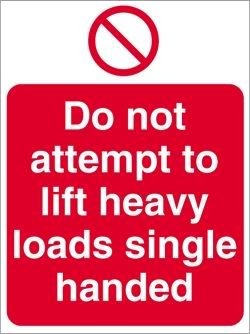
image courtesy of photobucket.com
“Daddy, can you carry this? It’s too heavy.”
My daughter. She trails behind her a sack of what may be Barbie dolls, or maybe laundry. I can’t tell from where I sit. I can, however, tell she’s right. It’s too heavy.
“Sure thing.”
I get up and make my way over, but not before turning the channel on the television. Just in time, too. My daughter craned her neck toward it at just the next moment. She got an eyeful of Sportscenter rather than an eyeful of the latest bloodshed.
I bent down and grabbed her sack—Barbies after all.
“Where’m I taking this?” I ask her.
“To my room.”
I nod and shoulder the load. “Lead on, MacDuff.”
She takes one more look at the television, says “Sorry about the Yankees, Daddy,” and then blazes a path down the hallway toward her room.
“That was Shakespeare, you know,” I tell her. “The MacDuff thing.”
Unimpressed with my literary knowledge, she merely nods and says, “That’s nice.” I know something else is on her mind. Something else is always on her mind. I deliver Barbie and the rest of her clan to the safety of her bed, ask her if there’s anything else I can do for her, and park myself back in front of the television.
I push the button on the remote control that says Previous. Sportscenter disappears in a blaze of pixels that reforms into the rest of the evening news.
It’s a habit I’ve repeatedly tried to break, this news watching. I’ve reached the point where I can bear no more and have decided to test the theory that ignorance truly is bliss. Little of what I see on the television is ever felt in my quiet corner of the world. Things here go much as they always have, slowly and with little change. But a part of me feels it is my responsibility to know what’s happening. There is a sense that I must bear witness to these times, if only to pray that God will deliver us from them.
I see a pair of eyes peek at me from around the corner, small eyes full of questions. They grow into my daughter’s face. I push the button again. Back to sports.
“What you need, sweets?” I ask.
“Nothing.”
“Sure?”
She is not, and so walks into the living room and sits beside me. Says, “What were you watching, Daddy?”
“Just some sports.”
“No,” she says. “Before.”
I have the feeling she knows exactly what I was watching, which means I can either lie or tell her the truth. It’s not good to lie to your children. Necessary at times, but still not good.
“I was just watching a little of the news.”
“How come you always turn the news off when I’m around?”
“I don’t know,” I tell her. “You’d probably think it was boring stuff.” It’s a lie. Like I said, such things are necessary at times.
“I don’t think it’s boring. I like to know stuff.”
She leans her head on my shoulder and we laugh at the commercial on the screen. Mine is a tired chuckle, the sort that’s given more out of expectation than genuine feeling. I suppose my thoughts were more on the newscast than the humor. Hers, though? Complete and joyous, a laugh unencumbered.
The laugh of a child.
“You know that sack I carried to your room?” I ask her. “How it was too heavy for you to carry?”
She nods against my shoulder.
“That’s sort of why I don’t like you watching the news. Your sack was too heavy for your muscles, right?”
Nod.
“Your spirit has muscles, too. Some things on the news, they’re too heavy for you to carry right now. That comes later, when you’re older and stronger. Then you can carry all of that. But for now, I think you should just carry the lighter things. I’ll carry the heavy things for you.”
I kiss her on the head, a sign she understands means that’s all I can stay. My daughter lingers long enough for the commercials to end, then she skips back to her room and her Barbies.
I don’t know if she understands what I’ve just told her. Maybe that is too heavy for her as well. A part of me hopes it is.
My finger rests on Previous, and I realize it’s done so by habit. News, always news. Another set of eyes from the hallway, these the smaller ones of my son. He asks if we can watch cartoons. I tell him yes.
There will be no more news tonight, and I decide that’s a good thing.
Because there are still many things even too heavy for a father to carry.

August 13, 2012
The wonder of why
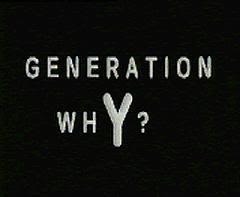
image courtesy of photobucket.com
I was about six years old when my father looked at me during an episode of Wild Kingdom and said, “For the love of all that is holy and good, please shut up!”Not that I was a talkative child. I wasn’t. And still am not. But I was in the midst of something amazing, and it had no choice but to leak out. Before, my universe in its entirety had been comprised of my home, my neighborhood, my church, and the grocery store. Everything else was fuzzy and gray and didn’t really matter. And I was happy.
But then things changed. At some point I sat in the backyard grass one night, gazed up at the stars, and began thinking about what they were and how they hung in the sky. And one day I looked at the mountains outside my front door and thought about who lived there a hundred years ago and what happened to them. And then I looked into the mirror and wondered, in my own childlike way, who I was and how I was possible. My world was creeping outward. Expanding. Suddenly, everything went from fuzzy and gray to bright and sparkling. And I was happier.
I had stumbled upon wonder. And it was expressed in my new favorite word:
Why.
This was at first an encouraging sign as far as my parents were concerned. I was waking up to the world and taking an interest in things, which was good. But as the days and weeks wore on and my questions not only kept coming but became more difficult to answer, they came to believe that perhaps my wakefulness and interest weren’t so good. Weren’t so good at all.
They’ve confessed as much to me, so now I understand the whys and for-whats of the day I watched Wild Kingdom with my father.
The episode was about creatures of the deep sea, and along with the requisite slugs and shrimp, they had shown several pictures of angler fish.
I had wondered aloud why there were a lot more fish in the sea than there were animals on land. And I had also wondered aloud why we had to send submarines to the bottom of the ocean instead of people in suits.
Then I asked this: “Why did God make that fish so ugly?”
“For the love of all that is holy and good, please shut up!” Dad said. Which was about the funniest thing I had ever heard. I laughed so hard that I fell off the sofa.
Tonight I sat with my own son on our own sofa, eating crackers and watching a recorded episode of Planet Earth. After eight years of living, his world is beginning to expand just as mine did. And like me, his favorite word is now “Why?”
Sigourney Weaver had just transitioned from sharks and whales to the creatures of the deep sea. Several bioluminescent fish lit the screen, tiny shrimp scurried along the sea floor, and then an angler fish crept into the scene.
My son said through his crackers, “Why did God make that fish so ugly?”
That’s when I remembered that story of Dad and me. And as I had spent the last twenty minutes answering my son’s questions with varying degrees of success, a part of me wanted to tell him the exact thing my father told me. But when I looked down and saw the grimace on his face and the tiny pile of cracker dust on his pajamas, I didn’t see my son. I saw me. And then I doubled over with laughter and fell off the sofa.
Much the same way I did thirty years ago.
My son peered down over the edge and gave me a what’s-so-funny? look.
“Atta boy,” I said, looking up to him.
Because I pray the wonder he has at this world and his place in it never wanes. It’s the sort of wonder that has cured diseases and explored our solar system and invented wondrous technology. And it’s also the sort of wonder that God bids us to have in abundance.
Number one on His top ten list of things He wants to hear is “I love you.”
Number two is “Why?”
Because if we want our faith strengthened, it must be tested. And if it’s truth we seek in this life, we must begin with doubt. The Christian faith is unique in that it centers itself upon a God Who revels in both the faith that lives in our hearts and the questions that live in our minds. He challenges us to ask the tough questions and seek their answers, even if some are unsearchable. He knows the great secret: the more we try to prove Him false now, the more we’ll prove Him true in the end.
God cannot be proven in a laboratory, but He can in us. We can know He’s there, that He’s paying attention, and that despite what we think or hear or see, He has something wonderful waiting for us on the horizon. And all He asks in return are three things:
That we hang on.
That we believe.
And that we wonder.

August 9, 2012
Why not forget?
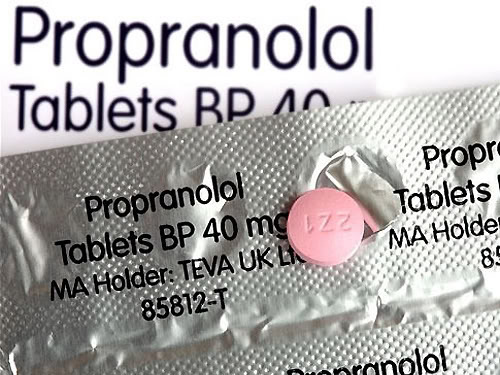
image courtesy of photobucket.com
It’s called propranolol.
A mouthful, to be sure. The reason why so many medicines have require long, unpronounceable names has always eluded me. I once asked my doctor why such a thing was necessary. He looked at me like I was stupid and answered nothing. I don’t think he knew why, either.
Propranolol is a beta blocker, used for everything from cardiac arrhythmias to high blood pressure to controlling migraines in children. A wonder drug with fantastic benefits.
A recent study by Dutch scientists has revealed another fantastic benefit, one that has led to a lot of thinking on my part.
Propranolol, it seems, also dulls memory. Dulls it to the point where these same scientists are boldly predicting a time in the very near future when we could rid our minds of bad memories all together.
Sounds wonderful, doesn’t it? To get rid of all those nasty reminders of the bad moments in our lives. It certainly sounds wonderful to me. Much of my daily life is still lived in the past, whether knowingly or not. It’s fingers still grip me. Loosely perhaps, but enough that I still feel them. Feel them in my decisions and reactions and worries.
And I’m sure I’m not alone. I dare say that I’m not the only one who carries around a little excess baggage. So why not lighten that load a little? Why not forget?
I can certainly see the value in such a therapy being used to treat those suffering from some form of post traumatic stress: victims of abuse or soldiers returning from war come to mind. These people are particularly prone to the agonies of bearing what may well be an unbearable weight. Such memories can lead not only to depression and psychosis, but even death.
But what about the rest of us? The ones who are plagued not by horrendous moments, but horrendous decisions? Are our bad memories made less so because they are not as powerful? Because they foster more guilt and regret than terror and numbness?
I’m not so sure.
We are largely the product of our experience, the end result of the countless choices and innumerable decisions. Many of those choices and decisions were good. Many were bad. But both worked together in an intricate and holy dance that has culminated in bringing us to both here and now.
But what if that dance were interrupted? Would we truly be made whole if those bad memories were taken from us, or would we somehow become less than we should?
Would the lessons we’ve learned from our mistakes be dulled along with the memories? And so would we then be doomed to repeat them?
Is there value in the things that haunt us?
That’s the question. One worth pondering, too.
We don’t mind accepting that the good in our lives was ordained by God. I’ve never doubted that my wife, my children, and my job are gifts from heaven. They provide my life with a healthy dose of meaning. They have purpose.
But if the good God has given us is endowed with meaning and purpose, then shouldn’t also the bad? And can we, with our limited vision and understanding, really label something as “good” or “bad” in the first place? How can we know for sure until the end result of our lives is played out and our story is done?
The blessings of my wife and children and job were born of horrible memories of the person I once was. It is because of those bad memories that I realize, finally, how blessed I am now. I love these things not because of the goodness I enjoy now, but because of the bad I suffered through then. Because the bad taught me what mattered. Would I give those memories back? No. Because I think the grace that has been given to me would be lessened in the forgetting. Because forgetting the pain of who I was then would dull the joy in Whose I am now.
We are all scarred by life. No one leaves this world as perfect as we entered it. But it is those very scars that shame us that make us all the more beautiful in God’s eyes. Rather than hide them, He beckons us to give them to Him.
Better than forgetting our memories is surrendering them. Better than pushing them down is lifting them up.

August 6, 2012
Back to school call to arms

image courtesy of photobucket.com
It’s often said people don’t miss what they don’t know, and that is a maxim proven true many times in my life. Like right now.
When I was a kid, back-to-school shopping involved little more than perusing the two aisles of office supplies at the local Roses, where the selection was limited and the quality was debatable. But now there’s Staples. If there had been a Staples when I was in school, I’m sure I would have roamed the aisles of notebooks and pencils with the same sense of wonder and excitement my children are displaying.
Shedding the outdoors for a classroom is now a call to arms. One look at the sheet of necessary supplies in my wife’s hand that came directly from the school officials confirms it. Pencils, notebook paper, backpack, glue, tape, composition book, erasers, and kid-friendly scissors are just a few of the necessary items. I feel like I’m sending my kids off to college rather than fifth and third grade.
Although I am at times not so patient a father, on this day and in this store understanding comes easy. My kids are regarding our trip here with the perfect blend of excitement and seriousness. A tiny seed of knowledge is being planted within them that somehow this supply shopping is no errand. In a few years it will sprout and grow into the knowledge that what they are doing is the physical manifestation of a spiritual truth. They will see this a holy rite, and a universal one at that.
Because if my children are anything like me, all this shopping and ogling over school supplies and all this excitement over starting a new year will likely one day be replaced by a determination not to screw things up yet again.
I was never a standout in school. Nowhere near honor-role caliber. Average at best. I suppose I had the smarts to do better and be more, but not the drive or discipline. What people thought of me and how I fit in mattered much more than learning the Pythagorean theorem or how photosynthesis worked. Then, and sometimes now, the things that really shouldn’t matter at all mattered very much.
For me, the best days of the school year were the first few and the last few. The first few because they always held the most promise. The last few because by then I had firmly entrenched myself in my yearly rut of getting by rather than pulling ahead, and just wanted everything over with.
But summer vacation is the Great Eraser, three months of sunshine and play that put enough distance between me and the previous nine months to suggest the next year might be mine to own. Back-to-school shopping would always cement that thought. All those fresh notebooks with empty pages waiting to be filled with knowledge? Pencils sharp and wood-scented, ready to chew on in deep thought? And of course there was the epitome of student organization, the Trapper Keeper. Those were the weapons I would wield in the battle against myself.
And it always worked for the first few weeks, after which those notebooks would be filled with doodles born of boredom and angst, the pencils would be thrown at either a classmate or the ceiling, and my Trapper Keeper would have been torn to shreds and abandoned in the bottom of my locker.
We have good intentions, don’t we? Every notion to make the next day our best, to rise above petty thoughts and empty words and become who we know we can be. And still every night we close our eyes with the nagging thoughts of who we let down and what we couldn’t measure up to.
Just as we can’t be the perfect student, we’ll never be the perfect people. Deep down we all know this. But we also know that just because our feet are stuck in the mud of this world doesn’t mean our hands can’t reach ever higher toward the sky. Just because we cannot fly doesn’t mean we shouldn’t stand tall.
That’s what I want my children to know as they walk these aisles.

August 2, 2012
What’s your sign?
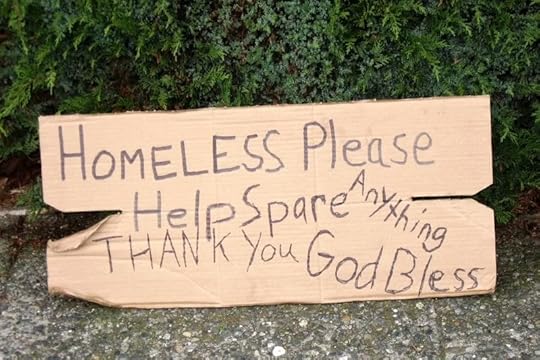
image courtesy of photobucket.com
Our sleepy town doesn’t really have a homeless problem. None that I know of, anyway. Those who through choice or circumstance lose their station in life usually have family or friends who are more than willing to offer them a place to stay.
But things are different in the nearby cities, where there are more than a few poor souls who have slipped through the cracks and settled on society’s murky bottom. Forgotten or, even worse, ignored.
You see these people most often perched along the busiest intersections. Their appearance is consistent with their desperation and need—dirty clothes, often a dirtier hat, unshaven and gaunt. And there is always a sign.
VETERAN PLEASE HELP GOD BLESS.
HIV+ NEED MEDICINE.
HUNGRY FAR FROM HOME PLEASE GIVE.
I have friends who refuse to give to such people based upon the skepticism that whatever proceeds these people receive will be used for less than savory activities. They don’t want to be a part of enabling a drug addict to buy more meth or a drunk more liquor. I also have friends who give regardless, believing that their act of mercy, of helping the helpless, is an act God happens to smile brightly upon.
I happen to adopt the latter position and give as often as I can, though I’ll admit there have been more than a few times when I have questioned the validity of their statements.
Still, these signs have always fascinated me. They represent the current state of one person’s life pared down to reveal only the essentials. One story able to fit on a single piece of discarded cardboard. And they are each by necessity crafted to initiate an immediate response. They are not designed to persuade through the intellect or please the eyes. They are meant to be shot as an arrow into the heart.
After running a few errands in the city yesterday, I was on my way home when I saw a man sitting by the guardrail on the opposite side of the road. His flannel shirt hung loosely from his body, sleeves rolled up against the hot sun. The blue work pants that completed the outfit were the sort that provided the maximum amount of wear for the least amount of money. A pair of untied brown tennis shoes shuffled the gravel.
But it was his sign that caught my attention. Three words, and no more. Three words that spoke very much with very little and offered honesty rather than a plea.
DESPERATE AND TIRED, it read.
The rush hour traffic was such that I couldn’t turn around and offer him what I could. I didn’t have much choice but to keep going. As I drove I watched him through the side mirror, hoping someone would stop.
No one did. Some, I suppose, didn’t notice him. Others probably did but then decided not to. One car full of teenagers blew their horn and offered a chorus of middle fingers.
The man never moved. Never shifted his weight or lifted his head. This was not so much an insult as it was the status quo.
Yet I realized that we all were in many ways like that poor man. Like all of the lost souls who roam our streets and barely manage to survive. We’ve all slipped through our own share of cracks at some point.
VETERAN PLEASE HELP GOD BLESS? We’ve all sacrificed, given all we’ve had, only to not get the same returned back to us.
HIV+ NEED MEDICINE? We are all hurting in our own way. Some are afflicted with physical ailments. Others have their ailments on the inside. Many of us have both.
HUNGRY FAR FROM HOME PLEASE GIVE? Within each of us is a hunger, whether to love or be loved, that can only be filled by a God who at this moment is readying a faraway place for us to call home.
And let’s not forget the last. DESPERATE AND TIRED. How many times have we all felt that way?
The difference between us and them have much less to do with our level of comfort and much more to do with our level of honesty.
Because we all carry a sign that tells the story of our lives, pared down to reveal only the essentials. They choose to show the world in a bid for help. We don’t. And for that, they are better.

July 30, 2012
Helen’s last will and testament
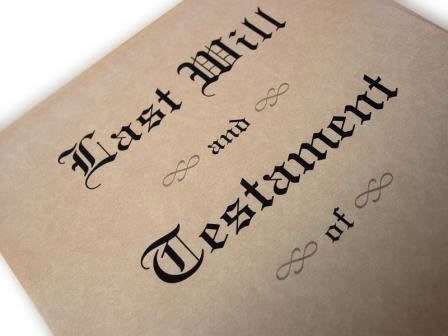
image courtesy of photobucket.com
The division of Helen Long’s estate was fairly straightforward. Her two story Cape Cod was to be sold and the proceeds divided between her daughter, Tina, and Mark and Matthew, her two sons. Personal items that held sentimental value were evenly distributed, stocks were liquidated and moved to provide for the grandchildren’s college education, and the vacation home in the Outer Banks was to be shared by everyone as a way to keep the family from drifting apart.
That last bit wouldn’t happen. Not to Helen Long’s family. She had spent too much time and given too much effort in keeping her family together to have them fall apart once she was gone. It was her mission in life, her purpose, and she could think of no better goal to devote her life to fulfilling.
She had done a good job, too. Having your last remaining parent pass away can bring out the worst in families, but this wasn’t the case for the Long family. In the months between the news that Helen’s cancer had spread and her death, she took great pains to ensure everything would go as smoothly as possible.
Funeral arrangements were made. Last minute bills were paid. And though Helen didn’t frequent church nearly as often as her children, her pastor visited often in the last weeks.
In a way, Helen’s passing was to be her crowning achievement. She, not her husband, had kept the family close over the years. There had never been rifts or disputes between the kids, never so much as an argument. Her dying wish was to keep it that way, to give her family something that would allow them to remember their mother’s love. Even in death, Helen would teach them.
And oh, did she teach them.
The funeral services were handled with both precision and ease. There was sadness, much sadness, but there had been ample time for goodbyes. Mark, Matthew, and Tina held their own. Even the grandchildren didn’t cry. The pastor himself said it was one of the most peaceful funerals he’d ever presided over.
When the lawyer called a week later for the reading of Helen’s will, it was only the children who attended. Their spouses and children didn’t feel a need to play referee or look after the best interests of their mates. After all, everything had already been settled. Everything would be fine.
They were right about the former assumption. The latter, not so much. Because while Helen had included her children in all of the planning, she neglected to mention the letter.
The lawyer presented the envelope to them and asked that they verify it had not been tampered with. Tina gave a sideways look to Matthew, who echoed it to Mark.
The lawyer lifted his reading glasses to his eyes and leaned back in his worn leather chair as he carefully slit the envelope open, revealing a single sheet of paper upon which a single paragraph had been written:
Dear Children,
Do not mourn for me because I will not know it. I’m gone. That’s it, just gone. Don’t go fooling yourselves into thinking that I’m sitting on a cloud somewhere with a smile on my face and wings on my back, because I’m not. I’m dead. There’s nothing after this life, so remember what I always told you—all you have is each other.
For the first time since her mother’s death, Tina began to cry.
Helen’s three children sat silent as the lawyer then proceeded to review the contents of the will, all of which didn’t matter before the letter and only mattered less after. Because the money and the trinkets and the vacation house wouldn’t make up for the fact that they would never see their mother again.
All this time, and they never knew. Tina and her brothers all attended church regularly, and they all were certain of their eternal home. They simply took it for granted that Helen was certain, too. After all, she had sat beside them many times in church.
But neither of them had ever bothered to make sure. They never asked that question. And now, suddenly, it was too late.
Two years after her mother’s death, Tina still carries that letter tucked inside a pocket of her purse. She showed it to me last week. The ink was worn and the paper crumpled, as if it had been thrown away and reclaimed time upon time.
“I can’t let it go,” Tina said. “I never will.”
I don’t expect she will. I wouldn’t, either. Tina still carries the burden of never asking her mother if her soul was secure. She holds out hope Helen’s mind was changed in her last minutes of life. That the letter was written in a bout with hopelessness and despair that was lifted in that last breath, and she will see her mother again.
I hope so, too.

July 26, 2012
Who is James Holmes?

mugshot image courtesy of nydailynews.com
I was going to be silent about James Holmes and Aurora, Colorado. I think when tragedies such as this happen (and tragedy is a good word, I think; many others apply, but I’ll stick with that one for now), the first thing people do is say how horrible it is, and the second is that they ponder how such a thing could happen. In the past week, I’ve heard a lot of smart people offer a lot of not-so-smart reasons why James Holmes dyed his hair red, called himself the Joker, and shot seventy people. The truth is that we may never know exactly why, and that is a hard truth to accept.
I also tried keeping this whole mess far from my children, all the while knowing I couldn’t for long. It lasted until Wednesday evening, when my daughter saw him on the news.
I don’t know how much she heard or from that how much she understood. However much it was, when I walked into the room and turned the channel, she had only this to say:
“Daddy, why is the world so beautiful and so bad? Why’s everything dim?”
The reason I gave her was the sort of generalization every parent offers to every kid when it comes to things they’re still too young to understand. Something about how things have always been that way or how God was still in control, something that made her feel better but not so much me. And her question stuck so much with me that I knew I’d have to sit down and think some things out as well, offer my own reasons for what this man did, if only to appease myself.
We loathe this man. Let’s begin there. We say he is evil and broken and, if we’re honest, we also say he scares us. And why wouldn’t he? After all, the people sitting in that movie theater were us. They were parents and children, brothers and sisters. They were the young and the old and that great expanse in the middle. They were ordinary people who wanted nothing more than a temporary reprieve from their ordinary lives, and at some point over the past week, I’m sure we all have paused to consider that it could have been us in there. It could have been someone we love.
For me, at the beginning, that is why I hated him.
And then I considered what punishment could be meted that would be most just, and I thought it best that he stand defenseless inside a darkened movie theater and be set upon by a man wielding an assault rifle and a shotgun and a pistol and canisters of tear gas, and I thought even that would be too lenient and too decent, and then I realized that maybe the reason I hate him is also because there is some of me in him and some of him in me.
How can the world be so beautiful? In the stories of this horribleness we’ve heard victims offer forgiveness and the dead sacrifice themselves for loved ones. We’ve seen the courage of the first responders. We’ve born witness to the very best that we are in the midst of the very worst we can be. That’s how the world can be so beautiful.
How can the world be so bad? How can evil roam free? How can such hate and apathy boil over in someone whose only criminal infraction was a simple speeding ticket? How can it be that we no longer feel safe in a movie theater or a school or a city street?
And how is it that any option to curb such evil will never succeed? Easier access to mental health experts will do nothing if those who need it most refuse to seek it. Strict gun laws in Japan and Britain have drastically reduced the number of shooting victims, and yet violent crimes involving other weapons such as knives and baseball bats have skyrocketed. That’s how the world can be so bad.
But how can the world be both? Why doesn’t it ever seem to get better (as some say it will) and lead us into a new dawn? And why doesn’t it ever seem to get worse (as others prophesy) and plunge us into a midnight?
I don’t claim to know. But I do have an idea.
Perhaps it is because there is a darkness in us but also a light, and it is by their mingling that our world rests in a lasting eventide that is neither bright nor black, but only dim.

July 23, 2012
Choose my next title, win my next book
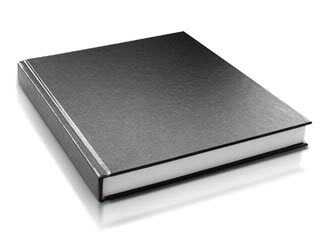
image courtesy of photobucket.com
The good folks at Thomas Nelson are just about to finish polishing up my third novel, to be released in May of next year. I can say with absolute honesty that it is (so far) my best book and that it contains (to this point) my best writing.
But there is one small problem. No one really seems to know what to call it yet.
Not me. Not them. We’ve whittled things down to two possibilities, but that’s as close as we’ve gotten.
And that, dear reader, is where you come in. Because since I can’t settle on anything and my publisher can’t settle on anything, we both figured maybe you could. So what I’d like to do is give you a short synopsis and the two titles we’re pondering and kindly ask for your two cents.
The story:
Leah Norcross wants nothing more for her ninth birthday than to be spared the horror of a party. What she receives instead is half the citizens of her peculiar new town of Mattingly in her backyard, an easel made by a failed toymaker named Barney Moore, and two new friends.
One of these friends is Allie Granderson, a little girl one year Leah’s elder who is both brave and gregarious, everything Leah is not. The other is an imaginary friend Leah calls The Rainbow Man.
Mattingly is a small town, the sort of place loved by those who live there and overlooked by everyone else. But it is also a magical town, a place where the wall between this world and the next thins. There is magic in Mattingly. And sometimes, many times, that magic will fly over someone unexpected. Even if that someone is a shy, unbelieving little girl.
At first only Allie believes the magic has flown over Leah—that her imaginary Rainbow Man isn’t so imaginary at all. That changes when Leah’s thank-you painting to Barney Moore contains hidden numbers that win him the lottery. Now Mattingly divides itself between those who see Leah as a prophet and those who see her as a danger. Caught in the middle are Leah’s psychologist father, who struggles to keep both his daughter and one abused patient from an emotional abyss, and Leah’s mother, who wants nothing more than to keep her family from falling apart.
When Leah’s paintings take an ominous turn and she announces a grave danger is approaching, her family and town must make a final choice to trust all they know or place their faith in what Leah calls “the Maybe.” Tragedy and fear force Leah’s few friends away as the town carnival approaches, along with a storm in which some lives will be lost and some destinies will be found—a storm from which the town of Mattingly can only be saved by one little girl and her imaginary friend.
There’s a whole lot more, but you get the idea.
As for the prospective titles, the choices are either Into the Maybe or Fly Over Me.
So I ask you, friend—which sounds better? Which catches your eye?
Comment below. Leave me a note on my Contact Page. Call me. Tweet me. Facebook me. Text me. Doesn’t matter which. Let me know what you think, and I’ll put your name in my hat for a free copy when it’s published. I’ll even scrawl a personal thank-you in it. Just keep in mind it will not contain any winning lotto numbers…

July 19, 2012
Lightbulb moments
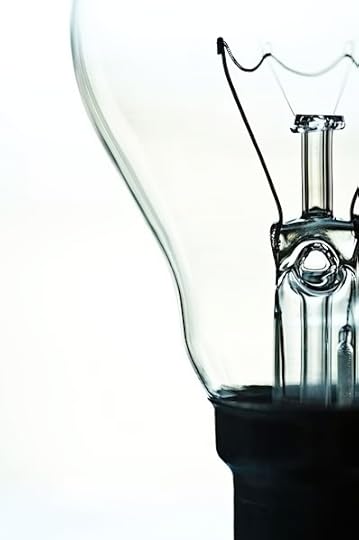
image courtesy of photobucket.com
One of the tenets of country folklore is the belief that people die in threes. It’s a tenet so ingrained around here that there is an influx of patients to the doctor’s office whenever a longstanding member of the community passes on. No one knows who will be next, and they don’t want to take any chances.
I’m not sure how much truth there is in that conviction. People might die in twos or fours just as often as threes. But I do know this—light bulbs die in threes. At least in my house.
It began last week with the light in my son’s bedroom, which much have died a quiet and peaceful death sometime in the night. He rose out of bed the next morning, flipped the switch, and…nothing. A few days later it was the light above the kitchen sink, which yelped a pop! when my wife tried to turn it on.
Then last night I came upstairs to my computer and fumbled for the light switch behind the door. Just as I flicked the switch upward, blue and white sparks sprayed from the ceiling fan in a burst of violence that actually managed to shatter the light bulb itself. It was quite impressive.
What brought about this light bulb mass suicide is beyond me. Our home is not old and the wiring was expertly done. I can only surmise that everything has its life cycle. At some point the odds are in favor of more than one sputtering out at the same time.
The blown light bulb is an exercise in both physics and inevitability. The cause is fairly straightforward: a light bulb’s filament does not evaporate evenly, leaving it to develop spots over time that are thinner than others. Since the electrical current heats the filament evenly, the thin spots heat more quickly. The result is a pop! and then darkness.
What struck me as I stood there staring at the bulb was my reaction, which so happened to be the one my son and my wife had, too. Not anger or frustration. Not even disappointment.
Confusion.
Because a light is supposed to turn on when you flip the switch it’s connected to. I had a vast amount of experience to back that assertion. It was one of the few of my life’s givens, so much so that I’d perform the act without giving it a second thought. Flipping a light switch is faith at its purest, the embodiment of if-I-do-this-then-this-will-happen.
It’s easy to take such things for granted, though. I’ve spent my day keeping track of every light I turned on, from the bathroom light when I first got up to the light in my office nearly sixteen hours later. My total thus far? Thirty. I’ve turned thirty lights on today, and none of them has broken.
I’m already taking the light switch for granted again.
So maybe I needed the gentle reminder that all those everyday things I put my faith in are neither permanent nor flawless. Things that go well beyond light bulbs and into the very center of my life. The job I have today may go pop! tomorrow. The savings account to cushion a fall may be pulled from beneath me just before I land. And the very ones I love most may be the very ones who let me down the hardest.
That’s the nature of life, the consequence of living in a world that isn’t quite what it should have been. We’re all searching for something to hold onto, something that will give us a sense of security and knowing, and yet everything we have is like that light bulb—at some time and in some way, they will all fail in an impressive fashion and leave us standing in the darkness. Which is all the more reason to place more trust in God than man.




